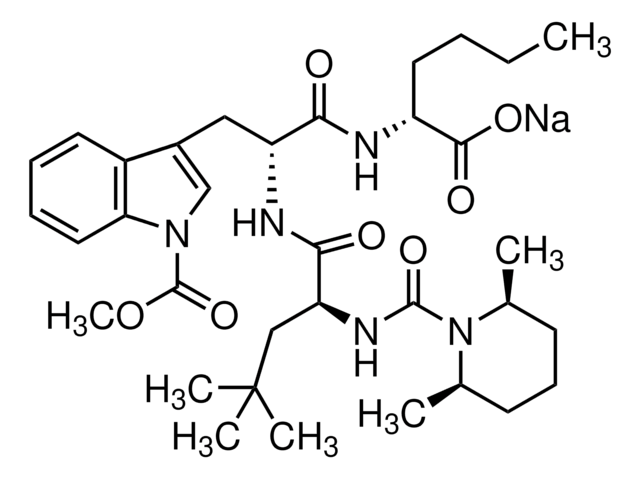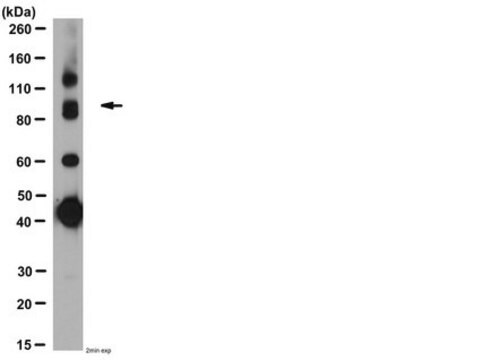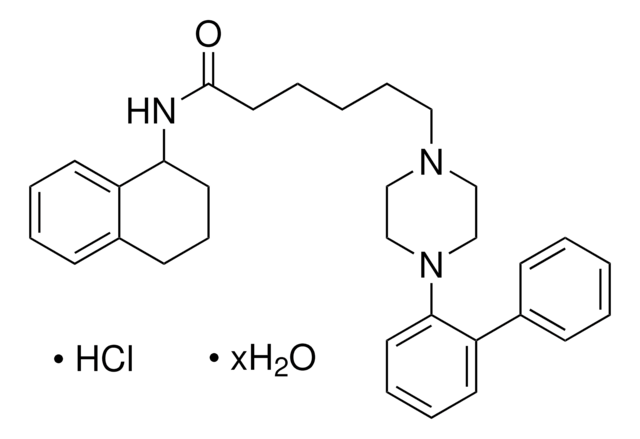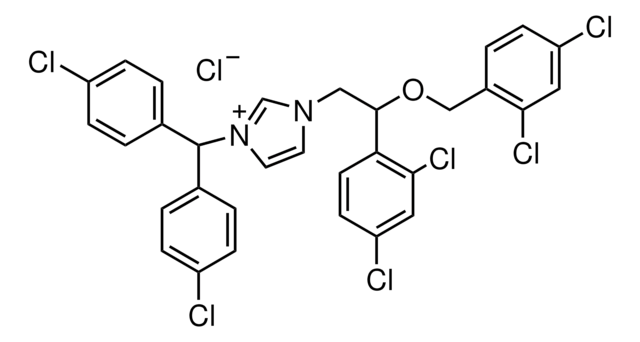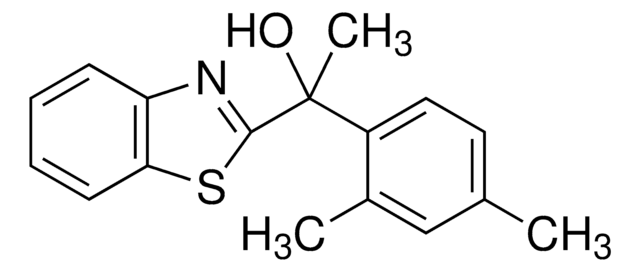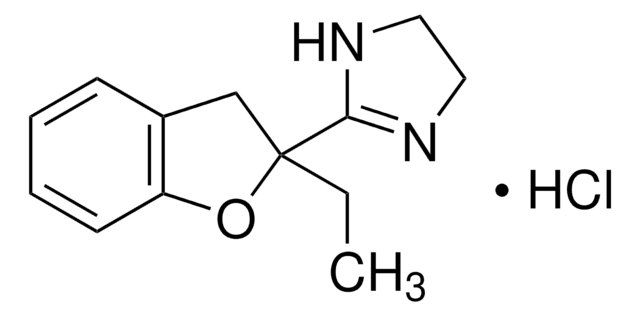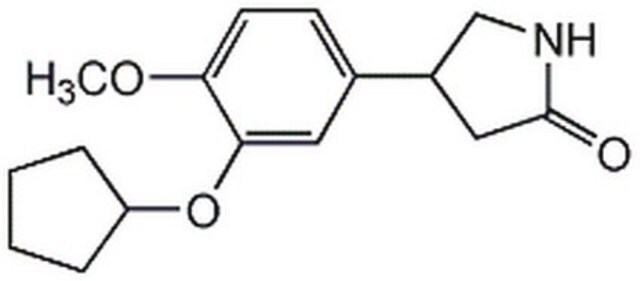B154
BU224 hydrochloride
solid
Synonym(s):
2-(4,5-Dihydroimidazol-2-yl)quinoline hydrochloride
About This Item
Recommended Products
form
solid
color
white
solubility
ethanol: 1.2 mg/mL
H2O: >16 mg/mL
0.1 M NaOH: 24 mg/mL
0.1 M HCl: >30 mg/mL
SMILES string
Cl[H].C1CN=C(N1)c2ccc3ccccc3n2
InChI
1S/C12H11N3.ClH/c1-2-4-10-9(3-1)5-6-11(15-10)12-13-7-8-14-12;/h1-6H,7-8H2,(H,13,14);1H
InChI key
DDFHQXAQWZWRSQ-UHFFFAOYSA-N
Biochem/physiol Actions
Features and Benefits
Caution
Signal Word
Warning
Hazard Statements
Precautionary Statements
Hazard Classifications
Eye Irrit. 2 - Skin Irrit. 2 - STOT SE 3
Storage Class Code
11 - Combustible Solids
WGK
WGK 3
Flash Point(F)
Not applicable
Flash Point(C)
Not applicable
Personal Protective Equipment
Certificates of Analysis (COA)
Search for Certificates of Analysis (COA) by entering the products Lot/Batch Number. Lot and Batch Numbers can be found on a product’s label following the words ‘Lot’ or ‘Batch’.
Already Own This Product?
Find documentation for the products that you have recently purchased in the Document Library.
Our team of scientists has experience in all areas of research including Life Science, Material Science, Chemical Synthesis, Chromatography, Analytical and many others.
Contact Technical Service

